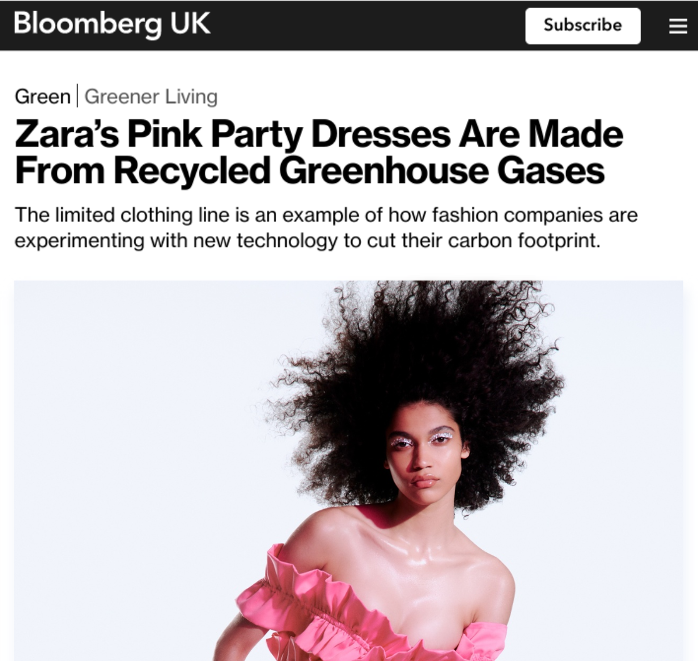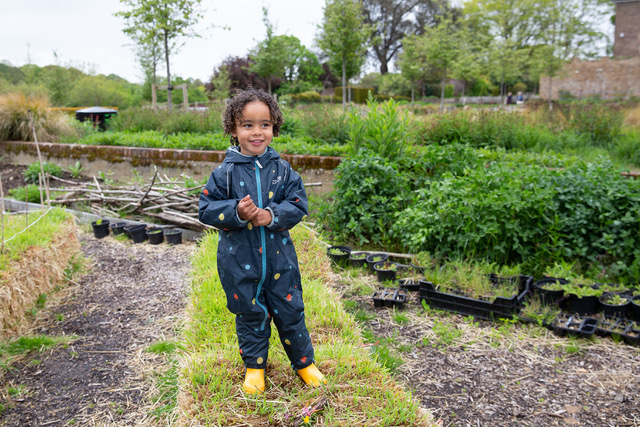Ethical underwear UK: the best underwear, lingerie and sleepwear brands laid bare
“Do the best you can until you know better. Then when you know better, do better.”
It’s a quote you’ve likely come across before, attributed to poet and civil rights activist, Maya Angelou.
For most of our lives, many of us were sailing along mainly oblivious to the damage that was being caused to the planet and those on it.
But following years of concerning reports from academics and research groups, along with a damning report by the Intergovernmental Panel on Climate Change (IPCC) in 2021, we can now remain in no doubt that humans are causing devastating climate change.
Time for us to do better, right?
Not quite. It’s more ‘time for multinationals to hoodwink us with inadequate steps towards sustainability’.
Greenwashing in the fashion industry
A new study by CDP (formerly the Carbon Disclosure Project) found that fashion was one of the three worst performing industries when it came to the formation of credible climate action plans.
The study assessed over 18,600 companies and found just 0.4 per cent had disclosed “credible climate transition plans” across all sectors. The figure is even lower for the 457 clothing and apparel firms assessed.
Meanwhile, greenwashing – the practice of a company or individual making misleading or false environmental claims – has become ever more sophisticated.
Planet Tracker, a financial think tank, recently released a report identifying six different types of greenwashing:
- Greencrowding – hiding in a crowd
- Greenlighting – emphasising positives to hide negatives
- Greenshifting – shifting the blame onto the consumer
- Greenlabelling – misleading the consumer
- Greenrinsing – regularly changing sustainability targets
- Greenhushing – underreporting to avoid scrutiny of green credentials.
Greenwashing and the media
I will throw in a seventh for good measure: ‘greenpressing’ – the practice of the media reporting and celebrating any small environmental initiative by large companies as if it were going to save the world, when in reality it might make up a fraction of the business’s output.

Last year, Zara was lauded for releasing a collection made from captured carbon emissions, with headlines from the likes of Bloomberg saying it was “a move away from fast fashion”.
Fact check: it was a ‘limited-edition capsule collection’; the items were made of only 20% recycled materials; and the technology is currently not scalable. This from a company that releases 24 collections and reportedly produces around 840 million garments each year. And in a period which saw the owner of Zara, Inditex, report a 19% increase on its net profits year-on-year.
The lack of media scrutiny into environmental practices is helping facilitate greenwashing on a mass scale.
Buzzwords like ‘regenerative’, ‘recycled’, ‘circular’, and ‘resale’ are blinding journalists and consumers alike.
The most important consideration is the business model itself.
When the strategy of the business is to mass produce garments, flooding the market and promoting excessive consumption, then any nod to sustainability is just that. A nod. Or perhaps even less than that – a derisory wink.
Why greenwashing is bad: the impact on small sustainable businesses…
As the founder of a small sustainable brand that was built with passion for ethical and environmental practices, it’s absolutely heart-breaking to see both my own business and others around me foundering in the current economic conditions at the expense of such brands.
My sustainable children’s clothing business, My Little Green Wardrobe, is struggling to survive – and other businesses in my sector have lost the fight entirely in recent months in part due to a lack of consumer spending power.
Consumer confidence is down, the country entered recession and many have been cautious with spending – understandably preferring to keep their heating and lights on.
When consumers do shop for products, research consistently suggests shoppers rank sustainability issues as the most important factor. A report by New York University’s Centre for Sustainable Business suggests more than three quarters (77%) of us believe sustainability is important when it comes to making a purchasing decision.
Sustainability sells.
But, how do shoppers know when they are making a sustainable purchase – when huge multinationals are issuing self-congratulatory press releases and revelling in the PR glory of their latest innovative eco tweak, while making misleading claims about their ‘eco’ collections?
The problem is it’s not a level playing field – and never was.
Why is greenwashing bad? David vs. Goliath
Having struggled to shop more sustainably for my own two girls, I naively thought if I built an excellent website and curated a selection of genuinely awesome ethical kids brands that I could help shift spending to brands whose businesses are making a genuine difference. Brands such as Musli by Green Cotton, which pioneered the first ever organic cotton t-shirt in 1991; Frugi which has forged the way for more environmentally conscious parents for the past 20 years by designing clothes that accommodate cloth nappies; along with new independent brands such as Roc + Rudi, which is designed and manufactured entirely in the UK in small production runs.
A build-it-and-they-will-come kind of mentality, I suppose.
And yet it’s not enough to have a good concept, great products and responsible business practices, because shoppers are being bombarded with sustainability messages and can’t tell the difference between brands that are walking the walk and those that who are doing little more than talking the talk.
The giants of industry are edging smaller ethical businesses out of the market.
I simply don’t have the deep pockets and marketing budgets to fund countless adverts, influencers, press launches, remarketing campaigns or even for social media. Let alone hire a PR company to do similar levels of press coverage for our latest sustainable innovations.
In such circumstances, it’s virtually impossible for ethical businesses like mine to cut through.
Research by the University of Aberdeen earlier this year found that many large fashion brands, including H&M, Next, Primark and Zara are paying Bangladeshi manufacturers below the cost of production.
Of the brands listed in the report, 12 are members of the Ethical Trading Initiative.
Need I say more?
In a super price-sensitive market, my business simply cannot compete with these fashion giants. Not least because the brands I sell pay a fair wage and use more expensive sustainable materials, so do not operate on the same profit margins.

Why greenwashing is bad: hoodwinking the conscious consumer…
And do you want to know what the absolute worst part of it is? These huge greenwashing machines are denying those shoppers who want to make a sustainable choice from doing so.
Those would-be-ethical shoppers probably felt good about their purchase because they believed they were supporting improved environmental and social practices.
In reality they may have supported practices that were potentially more damaging than usual.
A Changing Markets Foundation report in 2021 suggests that H&M’s conscious collection was, by some yardsticks, more damaging than their normal collection – with 72% of the collection containing synthetic materials compared to 65% in their standard collection.
It’s easy to lose hope at the prospect for brands like mine to survive and thrive in these circumstances – and, for many of us, currently things really are on a knife edge.
Awareness of greenwashing is increasing and the EU’s proposed laws on Digital Product Passports are due to come into force by 2025, which should also see greater traceability and transparency for consumers.
But until then, how many truly sustainable manufacturers and retailers will be able to hang on? I’m not sure…
Main image: Photo by Monstera, Pexels



